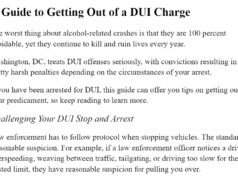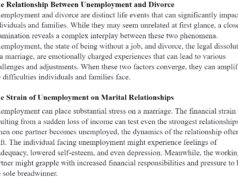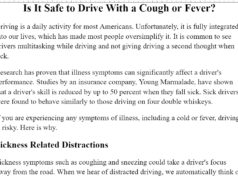SPONSORED CONTENT
D.C. Joins Seven States in Combating Corporate Tax Fraud
For as long as there has been taxation, there have been those who cheat on their taxes. Washington D.C. has joined seven states – Delaware, Florida, Nevada, Illinois, Indiana, Rhode Island, and New York – in holding wealthy corporations and individuals more responsible for their fair share.
The False Claims Act was initially passed in 1986 but did not apply to tax fraud, which has allowed the tax gap to grow exponentially. Washington D.C. plans to enlist the help of whistleblowers to crack down on tax fraud by the multinational conglomerates plaguing the city’s tax system.
The False Claims Act
The False Claims Act works in three steps to reform tax legislation on a state-wide level. The first step is to repeal the tax bar that was instituted in 1986. The poor writing of the law led courts to rule that the tax bar only applied to money requests from the United States Government. This loophole allowed contractors and wealthy corporations to lie on their payments to the United States without violating the False Claims Act.
Some states have decided to eliminate the Tax Bar so that their legal system can target major tax fraud within their borders. However, each state handles its cases differently. Delaware, Florida, and Nevada have no explicit limitations on false claim cases. However, Illinois, Indiana, and Rhode Island have kept the tax bar on income tax, but not on other taxes. Washington D.C. has mimicked New York’s plan, which allows those with inside information to report fraud to the Taxpayer Protection Bureau for a share of the cut.
This is where the second step of the False Claims Act comes in: enlist whistleblowers. Whistleblowers work within the business and report any white-collar crime to the United States, usually for a cut of the money. In a single case, New York recovered $330 million in unpaid taxes from Sprint Corporation alone. The whistleblower got upwards of $62 million for reporting the fraud.
The ultimate goal – and the third step in the False Claims Act – is to close the tax gap. The tax gap is simply the difference between what is owed and what is paid. It measures who is not paying their fair share of taxes. On April 13, 2021, the IRS Commissioner reported to Congress that the tax gap had grown to $1 trillion per year.
A majority of those skipping their taxes are corporations and the super-rich. The gap is only growing thanks to cryptocurrencies and foreign income shifting the economic landscape in America.
Progress
As mentioned previously, several states have begun reforming their tax laws to catch fraud more efficiently. New York has recovered $467 million in unpaid taxes since 2010. Since 2014, Washington D.C. has recovered at least $21 million. These advancements in tax law have led to significant crackdowns on multinational conglomerates trying to avoid paying their fair share.
“American Industry is the backbone of our economy,” said John Pontius, founder of Pontius Tax Law, PLLC. “It’s time we held them accountable, and they started carrying their weight.”
Washington D.C. put the False Claims Act into effect on March 16, 2021. They do have some regulations for whistleblowers written into the law. Whistleblowers can file a false claim if the offending party has more than $1 million in D.C. taxable income and has avoided paying at least $350,000 in taxes. These specifications ensure that those targeted by the act are wealthy corporations and individuals.



 Sign up for the Blue Virginia weekly newsletter
Sign up for the Blue Virginia weekly newsletter








